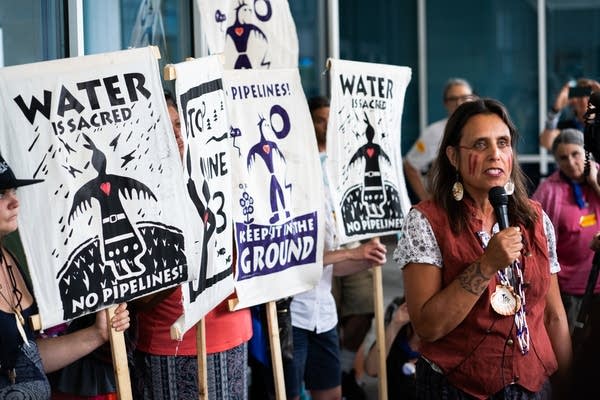PUC backs Enbridge Line 3 oil pipeline, sets route

Activist Winona LaDuke speaks at a press conference outside of the Public Utilities Commission in St. Paul, Minn. on Thursday, June 28, 2018.
Evan Frost | MPR News
Go Deeper.
Create an account or log in to save stories.
Like this?
Thanks for liking this story! We have added it to a list of your favorite stories.


